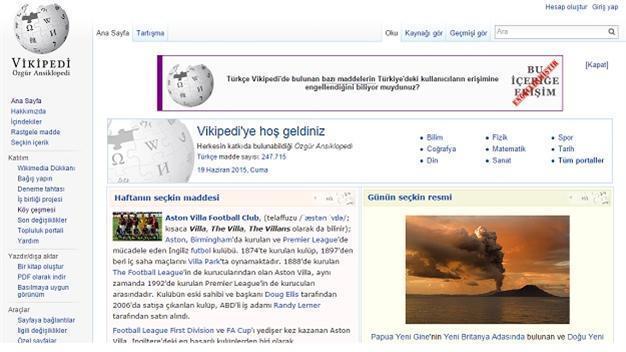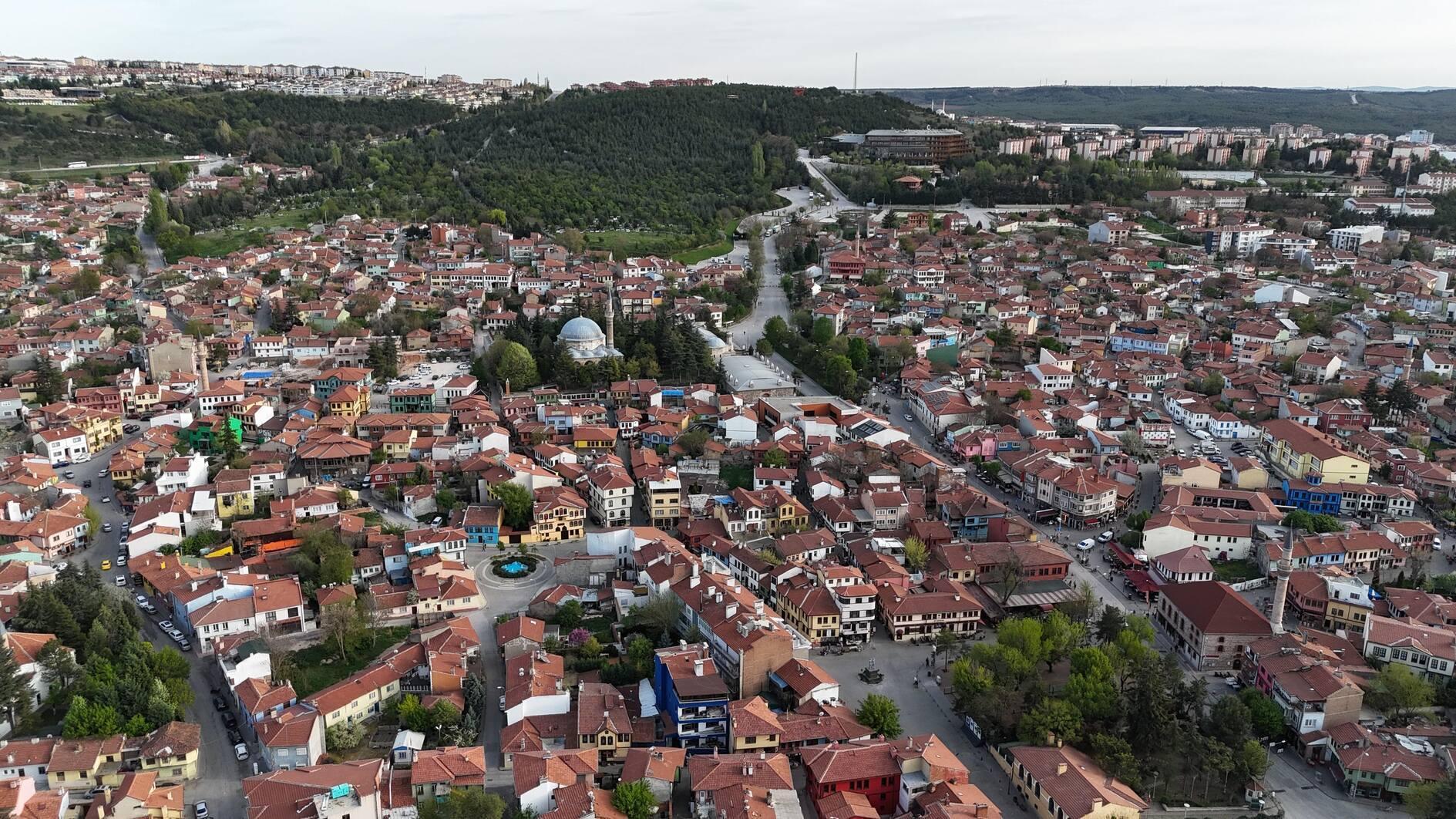Wikipedia releases warning on Turkey’s censorship, monitoring
ISTANBUL

Wikipedia’s Turkish edition warned its users with a banner on top of its homepage that “access to this content is blocked,” listing the five articles currently censored in Turkey.
Wikipedia has warned its users that Turkey “blocks” a number of its articles and is also monitoring contributors to the site.“Did you know that some articles on Turkish Vikipedi have been blocked to users in Turkey?” Wikipedia’s Turkish homepage warns, giving a list of censored articles.
As of June 19, Turkey blocks a total of five Wikipedia articles: “Human penis,” “Female reproduction organs,” “Scrotum,” “Vagina” and “Opinion polling for the Turkish general election, 2015.”
The access ban for the page on polls was introduced on June 6, a day before parliamentary elections were held in Turkey.
“We are trying to overcome these obstacles in countries where access to information is limited or controlled,” daily Birgün quoted Wikipedia’s chief communicator Katherine Maher as saying regarding the latest bans in Turkey.
Maher said Wikipedia had also made efforts to make it more difficult for the Turkish government “to monitor its voluntary users and block its articles” by introducing the more secure HTTPS protocol in all of its languages.
TTNET, Turkey’s largest Internet service provider, also announced back in November 2014 that a number of Wikipedia pages had been blocked by Turkey’s Telecommunications Directorate (TİB).
However, according to Wikipedia there was only one request from a Turkish ministry by late 2014 for the removal of content, which the website declined. Maher reportedly noted that “the community of Wikipedia is completely against censorship.”
Although Turkish President Recep Tayyip Erdoğan has routinely slammed a number of Internet platforms, including Twitter, Facebook and YouTube, the country’s authorities have yet to publicly turn against Wikipedia.
Only Prime Minister Ahmet Davutoğlu, a professor-turned-politician, has criticized the use of Wikipedia in academic work, complaining in November 2014 that the Internet encyclopedia allowed doctorate students to compile information for their theses in an “ordinary and mechanical” way.
















